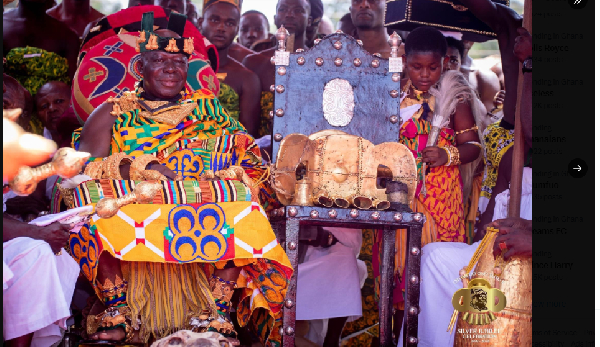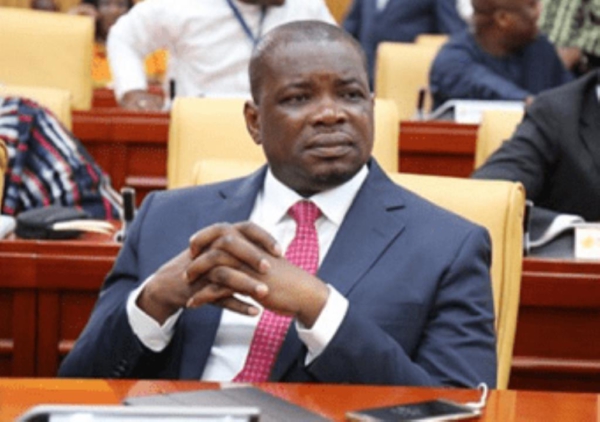
Listen to the concerns of peasant farmers on GM foods – Yankah | 3News

Founder of the PanAfrican Heritage Museum (PAHM), Kojo Yankah, has said that the concerns raised by peasant farmers in Ghana against Genetically Modified Organisms (GMOs) should be adhered to.
He argues that the farmers bear the pains that go into feeding the nation therefore, the authorities must listen to the issues that they raise.
The Founder of the African University College of Communications (AUCC) wrote on his Facebook page that “Genetically Modified Organism (GMO) seeds have been recently approved for Ghanaian farmers.
We have a future to protect.”
The peasant farmers, in rejecting the recent approval of genetically modified organisms, indicated that GMO crops were not the solution to the country’s food insecurity challenges.
The country recently granted approval for the commercialisation of 14 novel genetically modified (GM) products, consisting of eight (8) maize and six (6) soya bean products, through the National Biosafety Authority (NBA).
This decision followed the release of GM cowpea in 2022.
But the president of the peasant farmers, Wepia Addo Awal Adugwala, criticised the adoption of GMO technology.
“While we find this development disturbing, we are not particularly surprised as we predicted that neglecting the resistance of key stakeholders against the passage of the Plant Variety Protection Act, 2020, which was just a leeway and a canopy to allow the commercialisation of GMO products meant to promote the interests of four multinational seed companies—Bayer, Corteva, Syngenta and Group Limagrain—that control over 50 percent of the seed sector globally,” Mr Adugwala said.
He added “This is because Ghanaian farmers have managed to produce ample food using farmer-saved seeds and new seed varieties released by local seed breeders”.
The government and Ghanaian scientists should focus their energy on the well-being of Ghanaians rather than their own interests”.
However, addressing their concerns, the National Biosafety Authority (NBA), the body responsible for the regulation of genetically modified (GM) and its related products, indicated that it had not granted approval for the seeds of 14 GM products to be cultivated in Ghana.
The Chief Executive Officer of NBA, Eric Amaning Okoree, in a statement dated April 10, 2024,said the NBA, has only registered 14 GM products to be imported into the country.
He explained that any entity that is interested in importing any GM products into the country must first get an import permit from the NBA to be able to do so.
He said the 14 approved GM products are also not for cultivation but “they are for the purposes of food, feed or processing.”
“They have been registered to allow for importation for those purposes by individuals or groups interested in them.
Therefore, the NBA wishes to state categorically that those events or products have not been imported into the country for food, feed or processing yet,” he explained.
The NBA boss further explained that NBA as the government agency responsible for the regulation of GM and its related products has laid down procedures in line with Biosafety Act, 2011 (Act 831) and with international best practices in deciding on any application brought before it.
That, he noted, the “Authority therefore wishes to assure Ghanaians of the safety of GM product(s) that have received the NBA’s approval; notably the Bt Cowpea submitted by SARI and the fourteen (14) events submitted by Bayer West-Central Africa S.A and Syngenta South Africa which are intended for food, feed or for processing.”
Mr Okoree explained that the 14 approved products, made up of eight maize and six soybean events are not intended for cultivation.
“They are, rather, grains for direct use as food, feed or for processing as stated above.
This approval was granted under Section 13 of the Biosafety Act, 2011 (Act 831) and Regulation 15 of the Biosafety (Management of Biotechnology) Regulations, 2019 (LI 2383) following the evaluation of data and information supplied by the applicant and a thorough risk assessment by the NBA Technical Advisory Committee (TAC),” he indicated.
He explained that having received the applications for registration, the Authority evaluated the events in line with available data provided by the applicants in line with the authority’s mandate and regulatory processes.
Mr Okoree expressed the concern that the call to reject any GM seeds that will be supplied is “unfortunate”, adding “The NBA recognises the need for Ghanaians to adapt to the emerging plant breeding technologies in the agricultural space for sustained crop improvement and food security.”
In addition, he said, “We wish to reiterate the fact that the improved yield and sustained food security will rather inure to the benefits of farmers rather than impoverish them as being speculated by a section of the media.
Therefore, the NBA wishes to state categorically that those events or products have not been imported into the country for food, feed or processing yet.
It is important to note that the NBA as the government agency responsible for the regulation of GM and its related products has laid down procedures in line with Biosafety Act, 2011 (Act 831) and with international best practices in deciding on any application brought before it.
The Authority therefore wishes to assure Ghanaians of the safety of GM product(s) that have received the NBA’s approval; notably the Bt Cowpea submitted by SARI and the fourteen (14) events submitted by Bayer West-Central Africa S.A and Syngenta South Africa which are intended for food, feed or for processing.
Registered products are not seeds for planting but for food, feed or processing
The 14 approved products, made up of eight (8) maize and six (6) soybean events it must be emphasized are not intended for cultivation.






